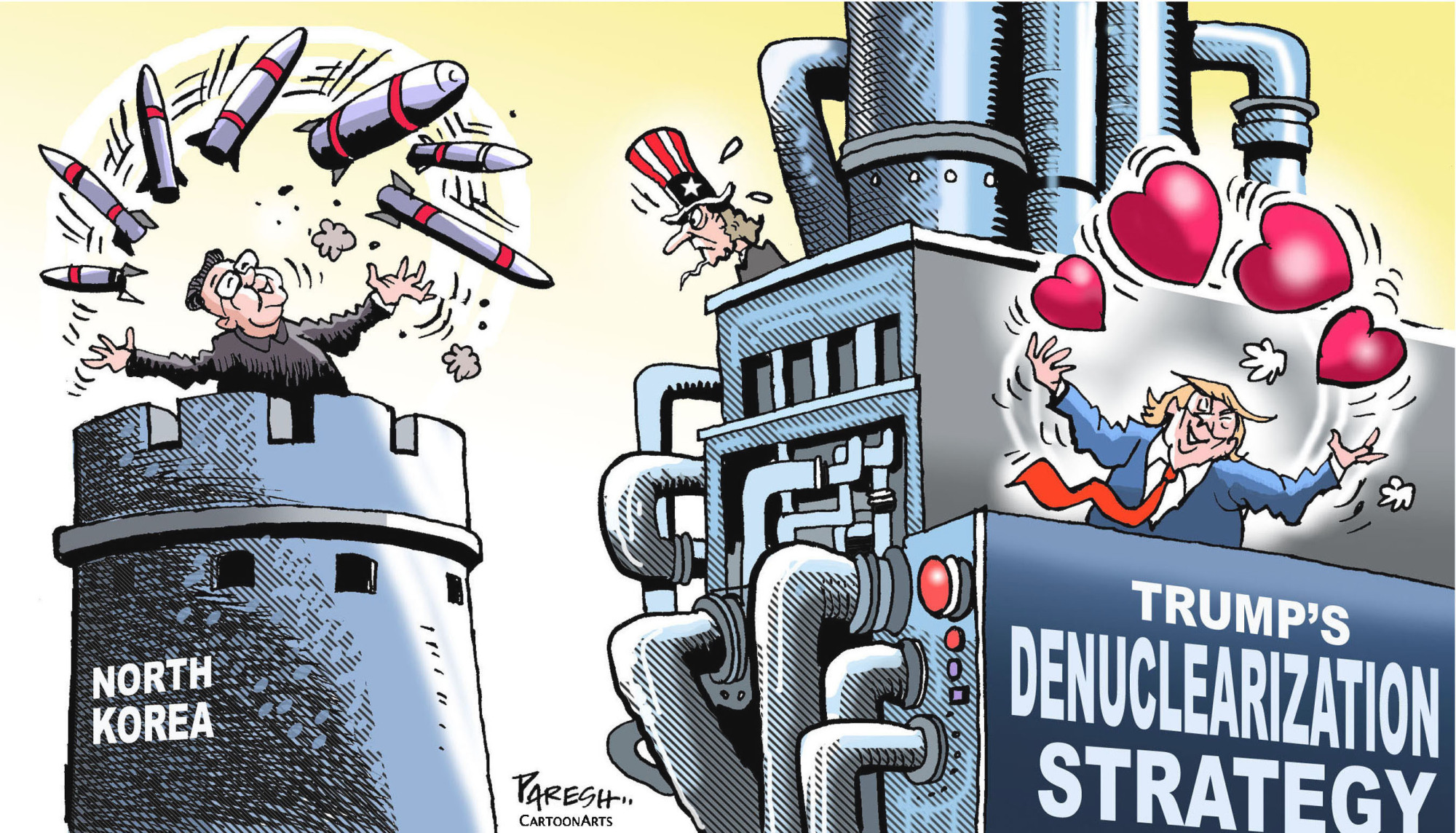No progress has been made in denuclearization negotiations since U.S. President Donald Trump and North Korean leader Kim Jong Un held their historic first face-to-face meeting in Singapore last year. Worse still, since May Pyongyang has resumed provocative short-range ballistic missile launches that violate United Nations Security Council resolutions and threaten the security of Japan and South Korea. Relations between the United States and North Korea appear to be returning to the confrontation it was in 2017.
In 2018, North Korea suspended nuclear and missile tests and the United States halted joint military drills with Soth Korea. These double suspensions provided conditions for dialogue. However, this formula has collapsed. Trump said that Kim had lived up to his pledge to halt long-range missile tests. Then, this month, North Korea claimed that it conducted a "very important test" twice, signaling it could be ready to launch an intercontinental ballistic missile at any time.
Kim warned that Dec. 31 is the deadline for a new proposal from Washington. North Korea has put the U.S. on notice that it will face a "greater threat" if it ignores this deadline. Kim, in his 2019 New Year's speech, already warned that North Korea would be "compelled to explore a new path" if the U.S. "seeks to force something upon us unilaterally ... and remains unchanged in its sanctions and pressure."



















With your current subscription plan you can comment on stories. However, before writing your first comment, please create a display name in the Profile section of your subscriber account page.